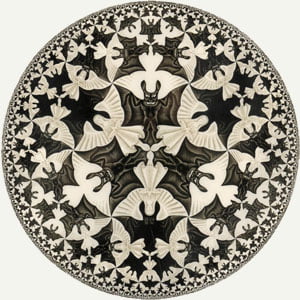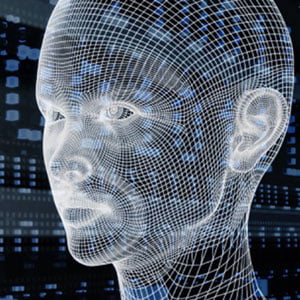a limit on human creativity?
With our creativity, we explore a space of art and culture, of science and technology, that expands outwards in all directions. By perceiving reality more clearly, we develop more sophisticated skills and tools that, in turn, deepen our perception of reality. It seems natural to believe that this virtuous circle is accelerating us towards an infinite horizon. But is this true and, if so, in what way?
the intelligence trap
Many believe that human intelligence has escaped the gravity well of ‘animal stupidity’, and that now we roam an unlimited space of thought where everything must eventually come within our understanding. Beneath this belief lies another: that humans are set apart from other animals – an idea that may be an expression of species neuroticism, and that finds its clearest expression in many religions. This special pleading has been eroded by the discoveries of science, …
vitruvian lobster
This attitude that Man is the very centre and the purpose, the crowning glory of Creation can surely only be held by people who live in fear and terror of their own insignificance. I have no doubt that early Man, close as he was – necessarily close – to Nature, did not dare these absurdities. For him animals were his brothers, sometimes even his gods.
orthogonality revisited…
I have come to realize that a seeking after ‘orthogonality’ is a warning sign that I am slipping into the comfort of relying on a dominant trait in my personality. Having read Iain McGilchrist’s book The Master and His Emissary I have become somewhat convinced that this dominant trait is actually an over-reliance on the left hemisphere of my brain. As such this becomes not only about me, but about a very large number of …
The divided brain…
The Master and His Emissary: The Divided Brain and the Making of the Western World is not a self-help book, nor is it one of those books of cod-philosophy that promise amazing (though ultimately ill-founded) insights into the modern condition. It is instead a carefully argued thesis meticulously supported by references to research, as well as by appeals to personal experience. Its core premise is that we possess a single consciousness, but two wills: one …
artificial intelligence
From ancient times man has dreamed of being able to give life to one of his creations. In Greek mythology, Hephaestus (Daedalus as well, I think?) constructed ‘robots’ (Talos, for example, Hephaestus’ gigantic bronze warrior of “Jason and the Argonauts” fame). It was not understood then how intelligence was going to be far more difficult to produce artificially than self-powered movement. When I was at school, there was much talk about chess playing computers and …






